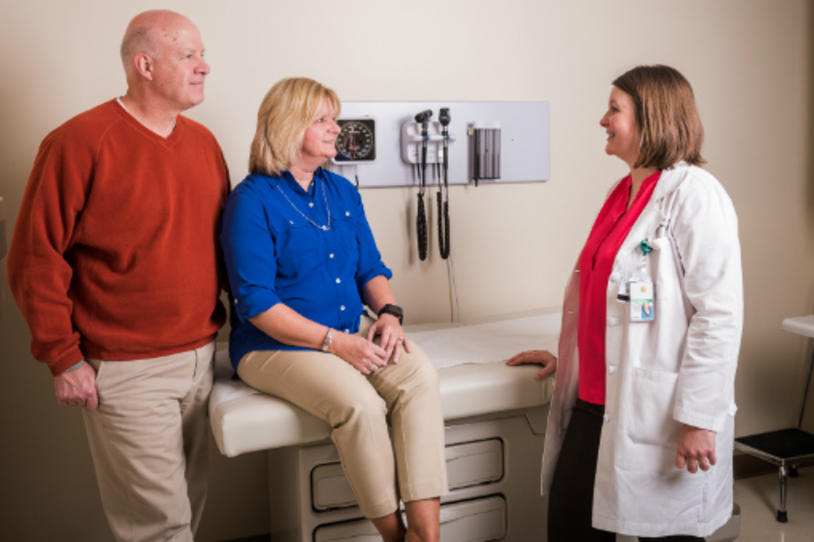
Constipation is a common problem for people both with and without Parkinson's disease (PD). For those with Parkinson's, it can range from a mild nuisance that causes temporary discomfort to a more chronic problem that significantly affects quality of life. In addition to its direct effects, constipation can impact the absorption and effectiveness of Parkinson's medications. Constipation can occur at any time during the course of Parkinson's, sometimes even decades before motor symptoms appear and the disease is diagnosed.
What Is Constipation?
Constipation occurs when bowel movements, or "stools," become less frequent and/or more difficult to pass. Some define constipation as less than three bowel movements per week, but what constitutes constipation typically varies from person to person because our usual bathroom patterns differ. Some people go every day, while others may go only three or four times per week.
What Causes Constipation?
There are many possible causes of constipation. In Parkinson's, constipation may be part of the underlying disease process. PD can affect the autonomic nervous system, a network of nerves that directs bodily functions we don't consciously control, such as blood pressure and digestion. When digestive tract movement slows in PD, constipation can result. Constipation can be a side effect of Parkinson's drugs, as well. It's a common problem, for example, with Artane (trihexiphenidyl), a drug sometimes used to target tremor.
Other prescription and over-the-counter medications, including narcotic painkillers, antacids that contain calcium (Tums) or aluminum (Mylanta), or iron supplements, can contribute to constipation too. Limited physical activity and inadequate water and fiber intake also can play a role.
The diagnosis of constipation is typically based on your medical history. If constipation is particularly severe or you have a family history of colon cancer, your doctor may perform certain tests, such as a colonscopy or abdominal x-ray, to exclude other medical conditions.
How Is Constipation Treated?
In some people, the treatment of constipation can be complex. Most, however, will notice substantial improvement with diet adjustments and increased exercise.
Dietary recommendations for constipation include:
- Drink at least six 8-ounce glasses of water per day.
Water increases flow through the digestive tract, allowing the system to function more effectively. Higher amounts may be necessary for some people, especially in hot weather, but start with at least six glasses per day. Keep in mind that caffeine and alcohol can cause dehydration, which will worsen constipation. And consider drinking warm liquid in the mornings, as this can sometimes stimulate a bowel movement. - Add more fiber.
Fiber helps drive waste through the intestine. Gradually increasing the amount of fiber in your diet can be helpful for constipation. Vegetables, berries, fruits with skin (e.g., pears, apples) and whole grains are good sources. - Eat smaller meals throughout the day instead of fewer larger meals.
Some people notice this helps with constipation as it allows more time for digestion.
Exercise is another key element of constipation management. Abdominal muscle movement helps to activate the digestive system. Steady, moderately strenuous exercise, such as gentle walking, swimming or light weightlifting, is one of the best ways to accomplish this.
When diet and exercise are not enough, both over-the-counter and prescription medications, including stool softeners, laxatives, suppositories or enemas, may be necessary.
- Stool softeners, such as docusate (Colace) can be used if stools are very hard. These can be taken short-term on a daily basis and should be used in conjunction with dietary modifications and exercise.
- Laxatives work in different ways. Some, such as polyethylene glycol (Miralax), pull water into the colon to ease constipation. These are fairly gentle and very popular. "Stimulant" laxatives, such as bisacodyl (Dulcolax) or senna (Senokot), promote muscle contractions in the digestive tract. As a general rule, these aren't recommended for daily use as they can be more harsh and associated with dependency.
- Enemas are sometimes used for significant constipation, but these should be used cautiously and under the advice of your health care provider.
Although there are no prescription drugs specifically for Parkinson's-related constipation, the U.S. Food and Drug Administration (FDA) has relatively recently approved three drugs for "chronic idiopathic constipation" -- constipation not due to a known medical cause or medication. These drugs -- linaclotide (Linzess), lubiprostone (Amitiza) and plecanatide (Trulance) -- may be considered in certain cases after diet changes, exercise and the above over-the-counter therapies have failed. However, they can be expensive.
As with all Parkinson's symptoms, you should discuss the treatment of constipation with your personal physician so you can work together to find a regimen that fits your needs.
What Research Is Ongoing?
Several therapies to treat Parkinson's constipation are currently in clinical trials. MJFF is funding trials to test a novel drug as well as a fiber supplement (a prebiotic) that acts as a fertilizer for "good" gut bacteria. Other ongoing work is testing additional medications and a gentle hands-on treatment that reduces tension and improves joint mobility ("osteopathic manipulative medicine"). Sign up for Fox Trial Finder to learn more and see if you're eligible. In addition to developing treatments, researchers are working toward a better understanding of the link between the gut and brain and Parkinson's. The MJFF-sponsored Systemic Synuclein Sampling Study (S4) measures the protein alpha-synuclein in the gut (and other fluids and tissues), which may help develop tests to diagnose and track PD and assess new therapies. And, in a partnership between MJFF and genetics testing company 23andMe, investigators are analyzing gut bacteria (the microbiome) to see if and how this differs in Parkinson's and among people with PD who have different symptoms (tremor vs. gait-dominant problems, for example).
Watch a webinar on constipation.
